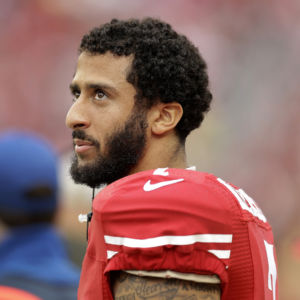Editor’s Note: For another viewpoint, see Counterpoint: Future of Football Is the Team With No Name
The NFL season is approaching, and it arrives into a much different world than the one in which the Kansas City Chiefs won the Super Bowl.
In the long months since, a pandemic has killed more than 180,000 people in America, league schedules have stopped and restarted as the country grapples with how to reopen, and historic protests for racial justice have spread across the country.
Oh, and Tom Brady no longer plays for the New England Patriots, and the Washington Football Team has — at least for now — shirked its racist name.
A lot has changed. And the question is: How will the NFL, a league notoriously averse to change, adapt to this different reality?
On the COVID-19 front, the signs aren’t encouraging.
Some owners are still beating the drum to put fans in the stands, with Dallas Cowboys owner Jerry Jones leading the charge for attendance. That could cause needless harm to thousands of Jones’ own fans and their communities.
It’s not even clear the players themselves can proceed safely.
While the latest round of testing turned up no player infections, infection rates can flame up rapidly. That’s what happened in Major League Baseball, where nearly 40 games have been postponed due to outbreaks among players. And football is a much higher-contact sport than baseball.
On other cultural fronts, the league will have to continue grappling with its misogyny problem. The NFL leadership’s flailing reaction to a continuing sexual harassment scandal at the Washington Football Team is a tragic continuation of familiar patterns.
But perhaps no issue will get more scrutiny than how the league handles the country’s resurgent movement for racial justice and the new political realities it has ushered in.
It has been just four years since San Francisco 49ers quarterback Colin Kaepernick kneeled during the national anthem to protest police brutality. He was ostracized from a league that feigns political neutrality to preserve its profits — even if they conveniently ignore the vocal Trump support of players like Richie Incognito, and not to mention many owners.
Now, the NFL does not have that luxury.
The changing world has meant that it cannot feign ignorance any longer, and it will not be able to placate players with meaningless publicity stunts from owners like Jones, a vocal Trump supporter who contented himself with kneeling photo-op with his players before the anthem.
Meanwhile, player walkouts in other leagues — the NBA, WNBA, MLB, NHL, and MLS — in response to the Kenosha, Wisconsin, police shooting showed not just the urgency of this issue but the power that labor actions by our most public and popular figures can have in America.
Some teams are beginning to take bolder stands in the racial justice arena.
The Baltimore Ravens, led by their players, put out a statement detailing a series of specific actions they want to see in the fight for racial justice. It includes arresting the officers responsible for the murder of Breonna Taylor in Kentucky and the shooting of Jacob Blake in Wisconsin, as well as the end of qualified immunity for abusive officers and prison sentencing reform.
To my eyes, this is an incredibly important — and surprising — action from the Ravens. But that is just one organization in a league dominated by conservative owners and vocally attacked by the president for giving any quarter to player protests.
It remains to be seen how many other teams will follow suit. My hope is that more players will take inspiration from the actions of other leagues and from the Baltimore Ravens and take stronger actions for racial equality.
It also remains to be seen how the fans respond. Of all the major sports leagues, the NFL’s fan base is the least partisan, which is a big reason the league has tried in vain to avoid engaging with the issues. But for all the talk of conservative fan boycotts over players kneeling and otherwise expressing support for racial justice, it hasn’t really borne out with the TV ratings.
As much as many of us would like to just watch football and forget about the rest of the world, that’s just not possible when holding games at all becomes a statement on the pandemic, public safety, racial justice, or the other issues of our time.
At a time when players in other leagues are discovering their power, NFL players need to find theirs too.

